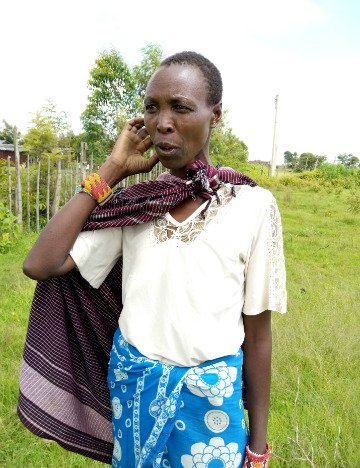Brooke campaigning brings an end to donkey slaughter in Kenya
Donkey owners protest against the donkey skin trade in Kenya.
Update: May 2021
In early 2020 we were pleased to announce the good news that Kenya's goverment had banned the conmmercial slaughter of donkeys. However, in May 2021 a Kenyan court overturned this ban following a successful legal challenge by slaughterhouses, who argued the ban violated worker rights. For more information on this decision and how you can help us to oppose it, see our latest news report.
In February 2020, donkey owning communities across Kenya celebrated the government’s decision to place a ban on the commercial slaughter of donkeys. The announcement came after years of campaigning by Brooke and its partners as more and more families found themselves affected by increasing Chinese demand for ejiao, a gelatine found within donkey skins.
The donkey skin trade
Prior to this announcement, Brooke declared that Kenya was the epicentre of the trade, as up to one thousand donkeys were killed across four slaughterhouses every day. Donkeys were sometimes stolen and butchered in the bush, and many families were unable to purchase new animals, leaving them unable to carry out vital daily tasks such as collecting water and travelling to markets. A 2019 study by the Kenya Agricultural and Livestock Research Organisation (KALRO) warned that donkeys could be wiped out within Kenya if no action was taken.
Announcing the ban, Kenyan Agriculture Cabinet Secretary Hon. Peter Munya said that the trade had caused the “stealing of donkeys, wanton and unmitigated slaughter of donkeys, which has led to drastic reduction in the donkey population.” He added: “We want to stop that criminality and brutality to restore donkey to its rightful place in our society, that of supporting livelihoods and crucial in providing transport”.
Peter Munya’s announcement was further strengthened when it was made official in law in April 2020. A Gazette Notice was published, completely revoking slaughterhouse licences, and giving the police and officials the power to enforce the ban.

Christine Kipsangu of Baringo County was previously left devastated when her four donkeys were stolen. Upon hearing of the ban, she said: “I am very happy for the announcement of closure of the slaughterhouses. Donkey owners will no longer have to endure the suffering of losing their precious animals anymore.”
Her comments were echoed by fellow owner Nalangu Nguyau of Narok County, who had eight donkeys stolen before finding a replacement thanks to Brooke East Africa and its partner Farming Systems Kenya. She said: “When I received the news of the closure of the abattoirs and the ban of the trade, I was very happy, at least my donkey will be safe - I will no longer have to worry or have sleepless nights.”
Whilst Brooke celebrates the huge progress made in Kenya, demand for donkey skins is still high and the trade continues around the world. Next, Brooke will set its focus on Kenya’s neighbour, Tanzania, where the trade is still legal. There are currently two slaughterhouses operating in Tanzania but there are fears of an increase in the market as those involved with the trade in Kenya look for new opportunities.
